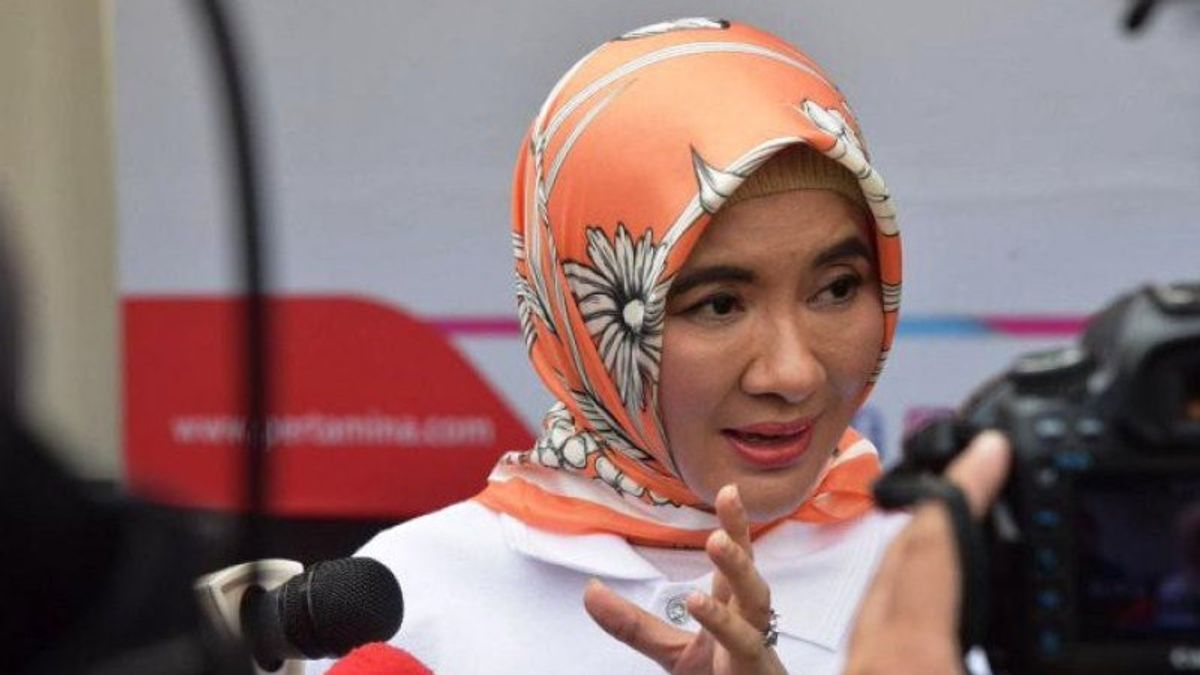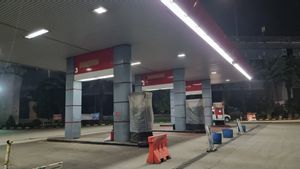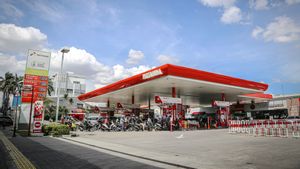JAKARTA - PT Pertamina (Persero) implements a dual growth strategy to maintain national energy needs, namely strengthening and expanding the management of existing oil and gas businesses and at the same time developing low-carbon businesses as driving growth in the future.
Pertamina's President Director, Nicke Widyawati, explained that Pertamina must implement a dual growth strategy, namely first, strive to maintain its current energy needs through our legacy business in the oil and gas sector. However, it continues to decarbonize all internal operations, from upstream to downstream.
Second, Pertamina will also focus on developing low-carbon businesses, including Carbon Offset, Carbon Capture Storage/Carbon Capture Utilization and Storage (CCS/CCUS), and natural-based solutions (Natural Based Solution).
"Currently, it is very important to maintain a balance between the two strategies. Until 2032, we will allocate most of our budget in the upstream sector to increase oil and gas production. Why is that? Because we have to achieve national energy independence to reduce dependence on imports of crude oil, fuel products, and LPG. In addition, we have also converted from an oil refinery to Bio Refinery, and integrated it with a Petrochemical factory," said Nicke, quoted Monday, March 25.
At the global meeting, Nicke outlined the Company's allocation of expenditures to answer the dual growth strategy. According to him, 62 percent of Pertamina's investment expenditure allocation will be directed in the upstream sector, 20 percent for refinery investment, and about 15 percent for the development of New and Renewable Energy (NRE).
However, over time, Pertamina will increase the Company's allocation of expenditure for low-carbon business development.
From this dual growth strategy, we believe that our energy transition will take place without anything to sacrifice. We will move towards sustainable energy without sacrificing security and energy availability," added Nicke.
SEE ALSO:
Nicke also reviewed the main challenges in the energy transition in Indonesia, including technology, financing, and human resource development. According to him, improving the quality of human resources talent must be done, so that it is ready and relevant to future energy needs. Technology is also very important, although Pertamina needs to maintain oil and gas production and reduce carbon emissions.
"We have decarbonized the scope of 1 and 2 in operation, and we managed to reduce about 31 percent of carbon emissions in internal operations, but we still believe that there is still a lot of room to improve," he added.
Nicke admits that decarbonization is a top priority followed by the development of new technologies to utilize domestic resources such as bio-energy.
According to him, Indonesia has plant-based energy potential, so technology is needed that can process natural resources into energy. In addition, he added, unconventional drilling and capture technology, utilization, and carbon storage are also important to overcome the carbon offset challenges.
We believe that technology and collaboration are key to progress in this regard, concluded Nicke.
The English, Chinese, Japanese, Arabic, and French versions are automatically generated by the AI. So there may still be inaccuracies in translating, please always see Indonesian as our main language. (system supported by DigitalSiber.id)













